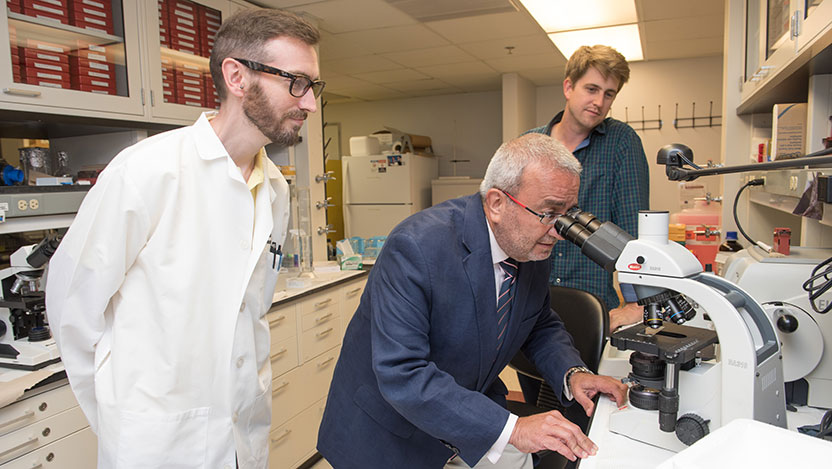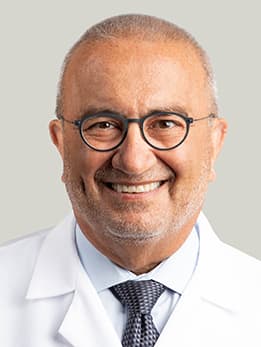Predicting brain bleeds with smart blood tests

When neurosurgeon Issam Awad, MD, Director of Neurovascular Surgery at the University of Chicago Medicine, began his academic career more than 30 years ago, there were only a few tools for understanding bleeding in the brain. Pathologists could look at a brain during an autopsy and find lesions that had bled. Physicians were just beginning to spot brain bleeds with modern imaging techniques, such as MRI.
Awad set out to understand one cause of bleeding in the brain – cavernous angioma (CA), a rare disease in which blood vessel abnormalities develop in the brain and cause strokes, seizures and serious neurologic complications.
In the 1990s, he was among those who discovered the gene behind the disease. Today, Awad leads the first accredited, and busiest, CA Center of Excellence in the U.S., and treats patients from all over the world. The next frontier: identifying biomarkers in blood tests that can tell which patient will bleed in their brain.
“We want to help patients answer the million-dollar question: Will my brain lesions cause a stroke, or can I live with them?” Awad said.
The promise of biomarkers
CA can vary widely among patients – some lesions may never bleed, while others can result in a catastrophic stroke. MRIs can tell if a lesion has bled recently but cannot reveal whether it bled in the more remote past, or importantly, if it will bleed in the future. Lesions destined to bleed are treated aggressively, with brain surgery or novel experimental therapies.
Many molecules in the blood can give clues about the tendency of lesions to bleed, but one alone cannot predict a bleed accurately. Using machine learning and advanced statistics, Awad and Yuan Ji, PhD, a professor in the University of Chicago Department of Public Health Sciences, combined the “hunches” from different molecules. They found that a weighted combination of four molecules, if found in a CA patient’s blood, projected with 90% accuracy whether the lesion would bleed within the next year.
Awad and his collaborators recently received an $3.2 million grant from the National Institutes of Health to continue this work. To ensure results are accurate among many populations, the researchers are now overseeing a clinical trial monitoring the accuracy of the test in hundreds of patients across different age groups, genders and geographic regions.
Awad’s team also is looking for additional biomarker molecules to improve test precision. “Our goal is to make it 100% accurate, a true ‘smart blood test’ in the era of individualized medicine,” he said.

Helping older patients
As some people age, their blood vessels begin to leak, leading to tiny brain bleeds very similar to CA, which contribute to stroke and dementia. A predictive biomarker test could also help guide treatment for these patients. For example, if it’s determined that a patient has a risk of bleeding in the next year, they should not take blood thinners such as aspirin.
In a recent paper in the journal GeroScience 2020, Awad’s team presented initial findings showing that older people who have brain bleeds have higher levels of the same biomarkers found in CA.
Ultimately, Awad hopes to have the biomarker test produced by a pharmaceutical company and widely available within five years.
“We anticipate this will help treat not only patients with cavernous angioma, but older patients with risk of brain hemorrhage, as well,” he said.

Issam Awad, MD
Issam A. Awad, MD, is an internationally recognized leader in neurosurgery. He is skilled in the surgical management of neurovascular conditions affecting the brain and spinal cord, including cerebral aneurysms, cerebrovascular malformations, carotid surgery, hemorrhagic stroke and skull base tumors.
Learn more about Dr. Awad